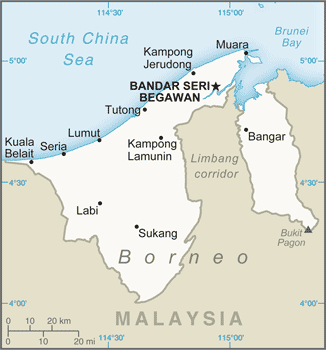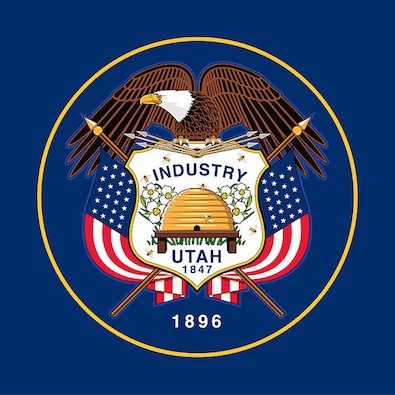 Secretary of State John Kerry and the Obama Administration are now (justifiably, I’d say, at this point) taking huge heat for trying to cement a major alliance with the podunk Southeast Asian absolute monarchy of Brunei.
Secretary of State John Kerry and the Obama Administration are now (justifiably, I’d say, at this point) taking huge heat for trying to cement a major alliance with the podunk Southeast Asian absolute monarchy of Brunei.
President Obama himself had been scheduled to travel to Brunei last fall during the trip to Indonesia, which the government shutdown canceled. Last year, he called the Sultan “a key leader in the Southeast Asia region and also widely respected around the world.”
Outrage has been stirred up with the long-planned launch in April by the government of a phased rollout for an elaborate new penal code with extreme religious conservatism based in hardline Sharia Law interpretations. In particular, U.S. LGBT activists in California are furious over the draconian anti-gay provisions and have been organizing boycotts against local Brunei state investments.
But the anti-gay problem is just the tip of the horrible, no good, very bad legal iceberg for the monarchy with fewer residents than Boston. At least a fifth of the country’s population is non-Muslim, which is now punishable with death by flogging. Interfaith marriages are now adultery, punishable with death by stoning. Breaking the laws of Brunei while outside the country (i.e. in neighboring Malaysia, also located on the island of Borneo) is also to be punishable under Brunei rules.
So why has the U.S. State Department been trying so enthusiastically to secure a partnership with the Sultanate of Brunei and its ironically named Abode of Peace?
Because it’s got a ton of natural gas and oil relative to its size (35th biggest oil exporter and 26th biggest gas exporter in the world), it’s an original member of the proposed Trans-Pacific Partnership free trade agreement, it’s strategically located on the South China Sea coast, it’s been a counterterrorism partner since 2001 … and I guess they weren’t expecting it to go way off the deep end suddenly like this.
But really, I think the warning signs should have been there. Generous oil-funded social welfare policies aside, Brunei has not been cool people for quite some time now. Their human rights abuses, near total lack of civil rights, and obvious authoritarianism were pretty well known before now. The former British protectorate and past regional sea empire has been ruled by one dynasty with a pretty ironclad fist for six centuries.
Some of the pretend constitution’s provisions have been ignored for so long by the monarchy that the country hadn’t even gained independence (1984) at the time they were suspended formally, in the 1960s. The safe money would have been on further regression, not a dramatic improvement, for all the signs the world has been picking up from Brunei in the past decade.
One of those signs? According to the Boston Globe, it should have been the 2013 global human rights report from… drumroll please… the U.S. State Department:
…the State Department’s 2013 global human rights report criticized Brunei for its restrictions on religious freedom; exploitation of foreign workers; and limitations of the freedom of the press, assembly, and association as “the most prevalent human rights problems.”
It went on to mention the adoption of the new legal code based on religious Sharia law but noted that “the effect of the law will not be clear until it is implemented, which was scheduled to begin in phases starting in April 2014.”
Nobody could have predicted…
But it seems that finishing a free trade deal with such a pivotal player was too much to pass up. It’s interesting that nearly 600 years after Brunei rose to power by controlling water trade and coastal ports in the dense commercial shipping zone not far from the Spice Islands, it’s leveraging the exact same strategic economic power to do whatever it wants. I guess it’s true what they say!







 Secretary of State John Kerry and the Obama Administration are now (justifiably, I’d say, at this point) taking huge heat for trying to cement a major alliance with the podunk Southeast Asian absolute monarchy of Brunei.
Secretary of State John Kerry and the Obama Administration are now (justifiably, I’d say, at this point) taking huge heat for trying to cement a major alliance with the podunk Southeast Asian absolute monarchy of Brunei.